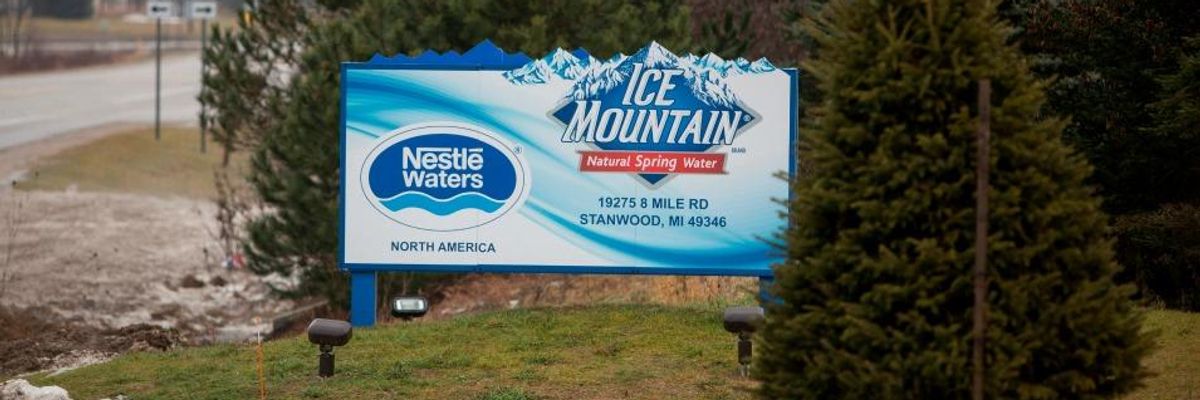Nestle's permit to extract hundreds of gallons of water per minute from a central Michigan town could be at risk following a decision by the state's second-highest court that the multinational company cannot build a pumping station in the town.
A three judge panel for the state appeals court ruled Tuesday that by building a pumping station which does not comply with Osceola Township, Michigan's zoning laws, Nestle would not be providing an "essential public service," regardless of its claims that it would offer a "public water supply" to the town.
The decision regarding Osceola represents a victory for the entire state, tweeted state Rep. Laurie Pohutsky, who on Thursday joined two other lawmakers in introducing legislation to protect the state's groundwater from private corporations.
"Allowing a corporation to bottle our water just to sell it back to us is hardly an 'essential service,'" wrote Pohutsky, a Democrat.
The judges handed down the decision two years after Nestle applied to build the pumping station in a children's campground in Osceola in order to extract more water from a nearby wellhead. The company sued the town after officials said the pump would violate zoning laws, and a lower court sided with Nestle in 2017, saying water is an "essential public service."
The appeals court on Tuesday argued that "other than in areas with no other source of water, bottled water is not essential."
Critics said the company's plan was part of its scheme to privatize water supplies across the country. In 2016, Nestle won preliminary approval from the state's environmental department to triple the amount of groundwater it pumps in the state, a year after medical experts first urged residents of Flint to stop drinking tap water after finding elevated lead levels in children's blood.
The court's decision could be appealed to the state Supreme Court, but as The Guardianreported, the ruling "could also lead state environmental regulators to reconsider" the company's water-pumping permits. The permits were issued under the assumption that Nestle would be providing an essential service to Michiganders.
Food and Water Watch's Midwest branch declared the decision a victory.
When introducing water protection legislation on Thursday, state lawmakers implicitly referenced the decision and Nestle's attempt to profit off of the state's water.
"Not only is groundwater essential for the state of Michigan, but we need to protect it and we need to put it in the public trust," said Democratic state Rep. Yousef Rahbi.
Jennifer Schlicht of Clean Water Action's Michigan's office celebrated the appeals court's decision and asked voters to urge their representatives to support the legislation.
"The concept of our water as a public trust is something Michiganders inherently understand, even if they don't know the term itself," tweeted Schlicht.

